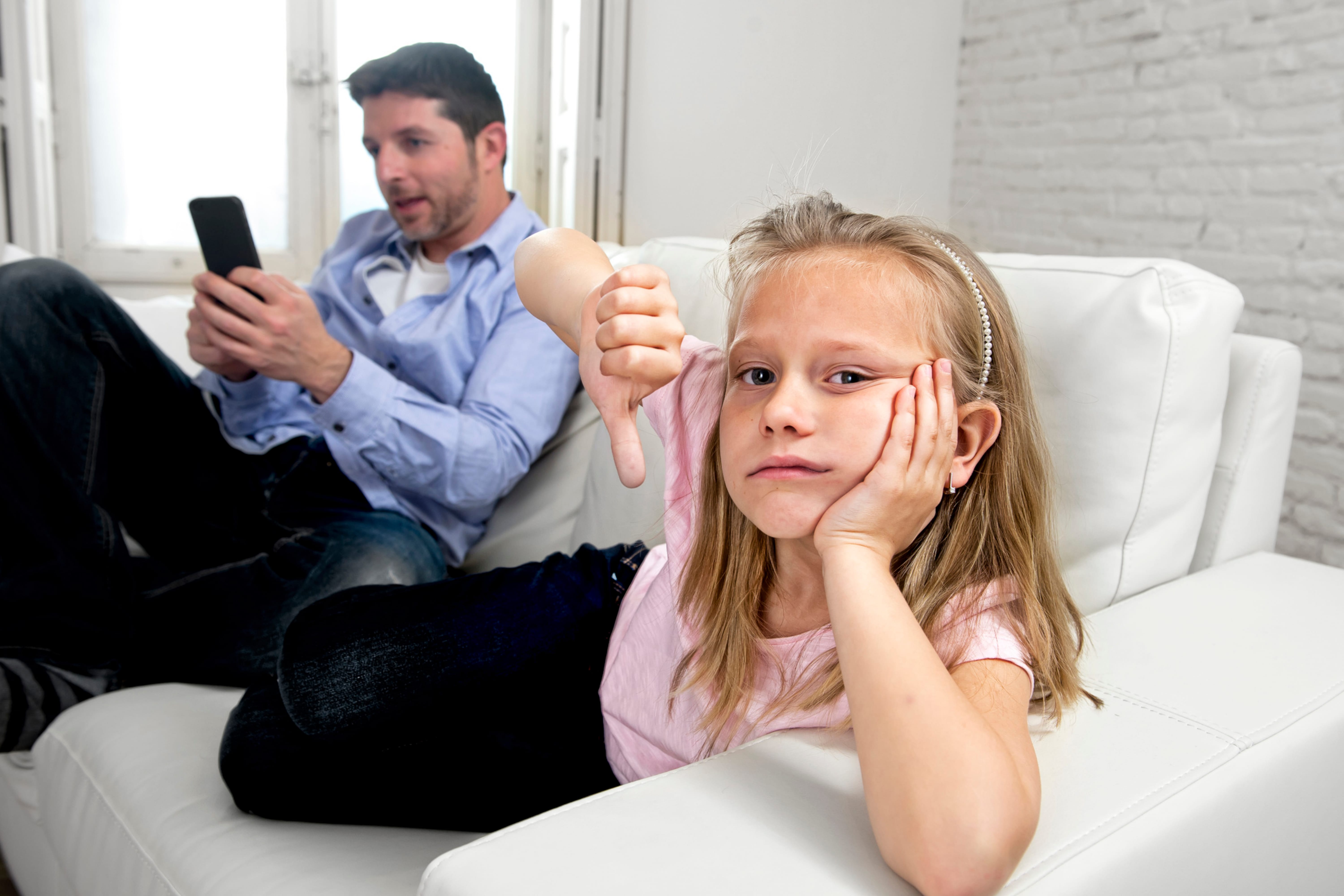Parenting is a beautiful journey, but it can also be a complex maze of emotions, decisions, and responsibilities. Ideally, the aim is to provide a nurturing environment that promotes healthy growth and development for the child.
However, when parenting styles veer towards negativity, they can create lasting emotional and psychological damage.
Recognizing the signs of toxic parenting is the first step towards breaking free from its influence and moving towards healthier relationships.
This article delves into the 13 warning signs of a toxic parent, identifying patterns that you might not have previously associated with harmful parenting. Remember, the purpose of this information is to foster understanding and provoke thoughtful self-reflection – not to lay blame or stoke animosity.
Consider these points as a starting place for evaluating and improving your relationships, whether they be with your own parents or as a guidepost in your parenting journey.
1. Emotional Manipulation
Emotional manipulation is a common tactic of toxic parents. It involves using feelings as a tool to control the child’s behavior or decisions. This includes guilt-tripping, gaslighting, or creating a fear of disappointing them. It’s important to recognize that while all parents may occasionally use emotions in their interactions, a pattern of such behavior could be a sign of toxicity.
Toxic parents might use emotional manipulation to maintain control over their child’s life, even as they grow into adulthood. You may find yourself constantly feeling guilty or being emotionally blackmailed into doing things their way.

2. Inconsistent Behavior
Inconsistent behavior, characterized by unpredictable reactions and mood swings, is another warning sign. One minute your parents might be kind and loving, and the next, they are cold and distant.
- Toxic parents may display erratic and unpredictable actions, leading to confusion and insecurity in their children.
- They might alternate between moments of affection and emotional neglect, creating an unstable and unreliable environment.
- Inconsistency can make it challenging for children to trust their parents or establish a sense of stability and predictability in their lives.
This unpredictability can lead to a lot of anxiety and confusion and may even extend to rewards and punishments. For instance, what is considered acceptable behavior one day might be grounds for punishment the next.
This unpredictability can create a chaotic environment, leading to chronic stress and anxiety.
3. Overly Critical or Judgmental
Criticism can be constructive, but when it’s constantly negative, it can severely affect a child’s self-esteem. If you find that your parent’s feedback is more often than not harsh, judgmental, or demeaning, it could be a sign of toxic parenting.
Whether it’s about your academic performance, your looks, or your personal choices, constant criticism can lead to self-doubt and low self-esteem. It’s crucial to distinguish between constructive feedback and harmful criticism.
4. Invasion of Privacy
A healthy parent-child relationship respects personal boundaries, including the right to privacy. Toxic parents, however, may not respect these boundaries and invade your personal space or privacy.
- Toxic parents may invade their children’s personal boundaries by constantly prying into their lives, snooping on their belongings, or excessively monitoring their activities.
- They may disregard their children’s need for autonomy and individuality, leading to feelings of violation and a lack of trust.
- Invasion of privacy can hinder healthy development and prevent children from forming a sense of personal identity and self-esteem.
Whether it’s reading personal messages, dictating personal choices, or insisting on knowing every detail about your life, this invasion of privacy can lead to a sense of powerlessness and low self-confidence.

5. Neglecting Your Needs
Neglect is another sign of toxic parenting. This could be emotional neglect, where your feelings and experiences are dismissed or invalidated, or physical neglect, where your basic needs are overlooked.
Neglect is damaging because it makes a child feel unimportant and unworthy. Children who are neglected often struggle with low self-esteem, depression, and anxiety.

Comparison Table of Toxic Parenting Signs and Their Effects
[table id=210 /]
6. Overbearing Control
Control becomes toxic when it inhibits a child’s ability to develop into a separate individual. Overbearing control could manifest as a parent dictating every decision, big or small.
Research indicates that such control can inhibit a child’s ability to develop confidence and decision-making skills.
- Toxic parents tend to exert excessive control over their children’s lives, limiting their freedom of choice and independence.
- They may micromanage their children’s decisions, activities, and relationships, stifling their personal growth and autonomy.
- Overbearing control can lead to feelings of helplessness, low self-confidence, and a lack of self-efficacy in children.
7. Dismissive of Your Achievements
Dismissal of achievements is another sign of toxic parenting. This could manifest as belittling your accomplishments or shifting focus to negatives even when you have achieved something noteworthy. This pattern can instill a sense of worthlessness and affect a person’s ambition and motivation.

8. Lack of Empathy
A lack of empathy can signify a toxic parent-child relationship. If a parent consistently fails to recognize or respond to a child’s feelings, it can lead to the child feeling misunderstood and alone.
Studies have shown that a lack of empathy in parenting can have long-term effects on a person’s ability to form healthy, empathetic relationships themselves.
- Toxic parents often struggle to empathize with their children’s emotions and experiences.
- They may dismiss or belittle their children’s feelings, minimizing their emotional needs and invalidating their experiences.
- The absence of empathy can cause children to feel unheard, unimportant, and emotionally neglected, impacting their overall emotional well-being.

9. Conditional Love
In healthy relationships, love is unconditional. However, toxic parents might make their love contingent upon certain behaviors or achievements, suggesting that their love must be earned.
This form of conditional love can result in feelings of insecurity and fear of abandonment.
- Toxic parents may attach conditions to their love, approval, and acceptance, making it contingent upon their children’s achievements or compliance with their expectations.
They may withdraw affection or emotional support as a form of punishment or manipulation. - Conditional love can instill deep feelings of unworthiness and insecurity in children, hindering their self-esteem and ability to develop healthy relationships.
10. Using Children as Confidants
While it’s healthy to have open conversations with your parents, there should be clear boundaries. If a parent shares too much information or relies on their child for emotional support, this could indicate a toxic dynamic.
In such cases, the child often grows up too quickly, missing out on important stages of development. Toxic parents may seek emotional support from their children for various reasons:
- Inadequate emotional coping skills: Toxic parents may lack healthy coping mechanisms and turn to their children to fulfill their emotional needs.
- Narcissism or self-centeredness: They may view their children as extensions of themselves and expect them to provide constant validation and attention.
- Emotional dependency: Toxic parents may rely on their children for emotional stability, seeking comfort and reassurance from them.

11. Unreasonable Expectations
Unreasonable expectations, whether academic, extracurricular, or behavioral, can put excessive pressure on a child. Meeting these expectations becomes the focal point of their life, often leading to stress and anxiety.
- Toxic parents often have unreasonable expectations from their children due to:
- Projection of unfulfilled dreams: They may project their own unachieved goals and aspirations onto their children, expecting them to fulfill those dreams.
- Desire for control: Toxic parents may have a strong need for control and impose unrealistic expectations as a means of maintaining dominance over their children.
- Emotional manipulation: They may use unreasonable expectations as a tool for manipulation, exerting power and creating a sense of guilt or obligation in their children.
12. Scapegoating or Favoritism
If a parent consistently blames one child for problems or clearly favors one child over another, this could indicate a toxic dynamic. Scapegoating and favoritism can lead to feelings of worthlessness in the scapegoated child and breed resentment among siblings.
Parents’ favoritism can stem from various factors:
- Personal biases and preferences: Toxic parents may have personal preferences for certain children based on physical appearance, toxic parents, or perceived similarities to themselves.
- Sibling rivalry or competition: They may foster a competitive environment among siblings, pitting them against each other and favoring the child who meets their expectations or achievements.
- Emotional manipulation: Toxic parents may use favoritism as a means to control and manipulate their children, creating divisions and fostering a sense of insecurity among siblings.

13. Parentification
Toxic parents may reverse the parent-child roles, placing excessive responsibilities and burdens on their children, forcing them to take on adult roles, and neglecting their own developmental needs.
Several factors can contribute to parentification:
- Absent or incapable parent: When a parent is physically absent, emotionally unavailable, or unable to fulfill their parental responsibilities due to various reasons such as addiction, mental illness, or physical disability, the child may step in to fill the void.
- Enmeshed family dynamics: In families with blurred boundaries and enmeshed relationships, children may be expected to provide emotional support, stability, or caretaking for their parents or siblings, often due to a lack of appropriate support systems or dysfunctional family dynamics.
- Role reversal: When a parent treats the child as an equal or relies heavily on the child for emotional support or decision-making, the child may be thrust into a parental role.
- Cultural or societal expectations: Cultural norms or societal pressures may place undue responsibility on children to contribute to the family’s well-being, especially when resources are limited or traditional gender roles dictate specific roles and responsibilities.
Parentification can have significant negative impacts on a child’s emotional, psychological, and social development, as it deprives them of a normal childhood and forces them to take on burdens that exceed their age and maturity level.

Possible Effects of Toxic Parenting
It’s important to remember that the presence of one or more of these signs does not necessarily indicate toxic parenting on its own. However, when these signs are persistent, pervasive, and significantly impact a child’s well-being, it may be indicative of a toxic parenting dynamic.
Toxic parenting can be harmful to children’s mental health and emotional state and may result in the following:
- Chronic anxiety
- Low self-esteem
- Lack of confidence
- Trust issues
- Fear of abandonment
- Lack of motivation
- Depression
Children raised by toxic parents often experience a range of negative emotions and psychological difficulties. They may struggle with low self-esteem, feelings of worthlessness, and a pervasive sense of inadequacy. Toxic parenting can lead to anxiety, depression, and other mental health issues.
These children may struggle with self-acceptance and self-confidence, often feeling like they are never good enough. The lack of healthy parental guidance and support can impede their ability to explore their interests, talents, and passions, limiting their potential for self-discovery and fulfillment.
Toxic parenting can manifest in behavioral challenges and difficulties in forming healthy relationships. Children raised in toxic environments may exhibit aggression, rebelliousness, or withdrawal as coping mechanisms. They may struggle with establishing healthy boundaries, as their boundaries may have been violated or disregarded by their parents.
The effects of toxic parenting are not limited to emotional and psychological well-being; they can also impact physical health.
Chronic stress resulting from toxic environments can contribute to physical health problems, including weakened immune systems, sleep disturbances, and increased risk of developing stress-related disorders.
The negative impacts on physical health can further exacerbate the overall well-being and quality of life for children raised by toxic parents.
Conclusion
In conclusion, recognizing the signs of toxic parents is essential for understanding the harmful dynamics that can exist within families. From inconsistent behavior to invasion of privacy, overbearing control, lack of empathy, and conditional love, these behaviors can leave lasting emotional scars on children.
Additionally, rare or unusual signs such as gaslighting, emotional incest, extreme perfectionism, and parental alienation should also be acknowledged.
By being aware of these signs, individuals can seek support and take steps towards healing, breaking the cycle of toxicity, and creating healthier relationships for themselves and future generations.

[wp-faq-schema title=”Frequently Asked Questions”]

How can I protect myself from the emotional manipulation of toxic parents?
It’s important to set clear boundaries and communicate your needs assertively. Seeking support from a therapist or counselor can also provide guidance in navigating these manipulative dynamics.
Can toxic parents change their behavior?
While change is possible, it largely depends on the willingness of the toxic parent to recognize their harmful behaviors and actively work on personal growth. However, it is essential to prioritize your own well-being and establish boundaries to protect yourself.
Are there support groups for individuals dealing with the effects of toxic parents?
Yes, there are various support groups available both online and offline that provide a safe space for individuals to share their experiences, seek advice, and find solace among others who have gone through similar situations.
How can I break the cycle of toxic parenting when I become a parent myself?
Breaking the cycle starts with self-awareness and a commitment to conscious parenting. Educate yourself about healthy parenting techniques, seek therapy to heal from your own past, and make a conscious effort to prioritize your child’s emotional well-being and provide a nurturing environment.
What are some strategies for dealing with toxic parents while still maintaining a relationship?
What are some strategies for dealing with toxic parents while still maintaining a relationship?
It can be challenging to navigate a relationship with toxic parents. Setting clear boundaries and limiting contact can be necessary for your well-being. Communicate your needs assertively and seek support from trusted friends or professionals to help you cope with the challenges that may arise.
Can toxic parenting affect my self-confidence and ability to trust others?
Absolutely. Toxic parenting can have a profound impact on self-confidence and trust. It’s important to recognize that these effects are not your fault and seek therapy or support to rebuild your self-esteem and develop healthy relationship patterns.
How can I break free from the guilt imposed by toxic parents?
Breaking free from guilt often requires a shift in perspective. Recognize that you are not responsible for their actions or emotions. Surround yourself with a supportive network, engage in self-care, and remind yourself that your well-being matters.
Can toxic parents change their behavior later in life?
While change is possible, it is rare for toxic parents to change without significant introspection and a commitment to personal growth. It’s essential to prioritize your own well-being and set boundaries that protect you from further harm.
What are some coping mechanisms for dealing with the effects of toxic parenting?
Coping mechanisms can vary depending on the individual, but some strategies may include therapy, journaling, practicing self-compassion, engaging in activities that bring joy, and seeking healthy support systems to help process and heal from the trauma of toxic parenting.
How can I avoid repeating toxic parenting patterns in my own life?
Breaking the cycle of toxic parenting starts with self-awareness and a commitment to change. Seek therapy or counseling to gain insight into your own patterns and triggers, practice self-reflection, and actively work on developing healthy parenting strategies and building positive relationships with your children.
Breaking the cycle of toxic parenting starts with self-awareness and a commitment to change. Seek therapy or counseling to gain insight into your own patterns and triggers, practice self-reflection, and actively work on developing healthy parenting strategies and building positive relationships with your children.